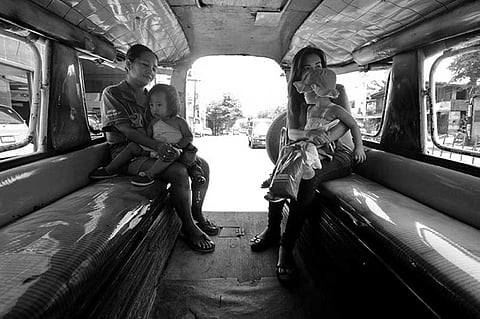

THERE was a curious juxtaposition of messages during the 7 a.m. mass said at the Our Lady of Lourdes Parish in Tagaytay City yesterday.
In his homily, Fr. Francisco Mesina emphasized that the fourth Sunday of Easter, observed as Good Shepherd or Vocations Sunday, is relevant to every member of the church, not just priests and seminarians.
Mesina illustrated the virtues of servant-leaders through the characters of contrasting mothers in a popular TV drama series. The woman genuinely caring for the son she did not even suspect had a biological link to her exhibited qualities not shown by the other woman, who pretended for ulterior motives to be the young man’s mother.
These qualities are listening to, empathizing with, and acting in solidarity with those in need.
After the mass, just as parishioners were leaving, a boy collapsed near the entrance of the church. While he was assisted, the boy gesticulated and repeated meaningless phrases.
The boy summoned a man in wheelchair. He touched and “prayed over” the emaciated legs. Then the young boy gestured for the man to “rise” from his wheelchair.
Even supported by two other men, the man collapsed back in his wheelchair. After onlookers drifted away, the young boy stopped gesturing and walked out of the church.
Before his “collapse,” the young boy was seen by SunStar Cebu kneeling before the altar while flapping his arms and talking to other youngsters, who stepped away from him. He was unaccompanied.
SunStar Cebu found it difficult to shake off the expressions glimpsed on the faces of the wheelchair-bound man and the boy: genuine pain and artifice, thwarted striving and enjoyment at the expense of others.
The metaphor of the good shepherd resonates in the public sphere, not just the spiritual. In the role of steering those following him or her, the shepherd exerts the power to lead or mislead; to enlighten or confuse; to empower or frustrate.
In the incident involving the boy pretending to be a miracle healer in Tagaytay, SunStar Cebu speculates about the boy’s influences. While both parents usually raise a child, the mother is, in the Filipino tradition, crucial for molding the character of her children.
In their role of connecting and keeping whole families, communities, and society, women are irreplaceable.
As pointed out by development workers, women’s participation must be involved even during the planning of projects because they not only bear the brunt of poverty but also shoulder the costs of alleviating poverty.
Women can generally be relied on, too, to care for the welfare of their children and other dependents, such as the elderly, as well as harmoniously work in solidarity with other women in the community. Women are better at consensus-building as they are raised to consult and listen to others.
Thus, social phenomena, such as overseas work separating women from families for extended periods, start a chain of reactions that has major consequences for youths, families, and communities.
Some trends affecting women resist change, too. As reported by SunStar Cebu’s Razel V. Cuizon and Cebu Normal University intern Jeany C. Abit on April 22, more men than women are running in Cebu Province for positions in the barangays and Sangguniang Kabataan (SK) during the coming May 14 elections.
This lopsided representation of women in politics motivated Akbayan Reps. Barry Gutierrez and Walden Bello to file House Bill (HB) 3877.
Also known as the “Women Participation and Representation in Political Parties Act of 2013,” HB 3877 will provide incentives to political parties that promote the agenda for greater women participation and equitable representation.
As Philippine realities demonstrate, it is not the quantity but also the quality of women participation at all levels—from the family to the community—that affect how other stakeholders will be guided and nurtured.